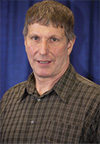New technologies, new management practices, new evolving regulatory policies and ever-changing consumer trends mean that today’s dairy farmers must be more focused than ever before.
A commitment to learning and continuing education has always been important, but with the pace of change today, it’s absolutely critical for producers to make their continuing education a top priority.
It’s easy to put these opportunities off, telling ourselves we don’t have time or shouldn’t spend the money on a conference registration fee when margins are tight. We’re fortunate in the dairy industry to have a wide variety of learning opportunities in many forms and formats. Webinars and online trainings, workshops, conferences and interactions with other farmers and industry professionals are all great resources.
The investment in a workshop or conference delivers returns almost immediately. First, getting away from the farm – even if it is just a few hours – provides time to take a step back and refocus. Sometimes a workshop results in a notebook full of learnings and insights, and other times you may only bring home one or two ideas. But if those one or two ideas result in a couple of thousand dollars in savings or increased production, your investment has paid off.
Many of the most significant changes start with a seed planted at a conference or workshop. Perhaps you heard one presenter talk about a new idea, then a few months later another speaker shared some data. The seed is planted, and you start asking questions, reading articles, doing online research, watching webinars and asking other dairy farmers about their experiences.
On our farm, cover crops, programmed A.I., and rumination and activity collars are all protocols that started with an idea from one speaker and evolved into valuable changes that have delivered significant returns.
Other changes, such as the transition process to bring our son and daughter-in-law into the operation and the installation of two robotic milkers, required a much more intense learning process. We spent years researching, attending events, and talking to experts and other farm families to develop a plan that was the right fit for us.
The investment in attending conferences and industry meetings also pays off with the connections you make. The network of fellow farmers, industry professionals and educators I’ve built over the years has been invaluable for sharing ideas and learning what has worked and hasn’t worked for them.
As a member of the PDPW board of directors, I have the opportunity to provide input on our organization’s training programs and annual business conference. A priority for the future will be continuing to provide opportunities for farmers to dig deeper into the financial management of their businesses.
The dairy industry has done a fantastic job developing educational programs to improve animal health and welfare and increase milk production. These are important and will continue as new technologies are available, but we need to make sure there is an equal commitment to understanding financial basics and being as efficient as possible in managing our businesses. I believe the next generation of dairy farmers will need to be both more diligent in the financial management of their farms and more creative in ways to generate income and engage with consumers.
Thankfully, we have more access than ever before to the information, research and resources we need to make the best decisions for our farms and families; we just have to pause long enough to take advantage of it. There is no better time to invest in the future of our farms and ourselves than now.
John Haag owns and operates Haag Dairy LLC, in Dane, Wisconsin, with his wife, Julie, and son and daughter-in law, Josh and Melissa Haag. Haag Dairy raises all their replacements on the 150-cow dairy in addition to selling approximately 50 cows a year to other farmers for their replacements. He is secretary on Professional Dairy Producers (PDPW) board of directors. In August of 2018, they began using two DeLaval robots in their milking routine. In 2011, they hosted the Dane County Breakfast on the Farm; since then John has been involved with the Dane County Promotion Committee, serving as a director-at-large for the past four years. He’s also been Lodi FFA alumni president for 12 years and an East Central/Select Sires delegate for seven years.




